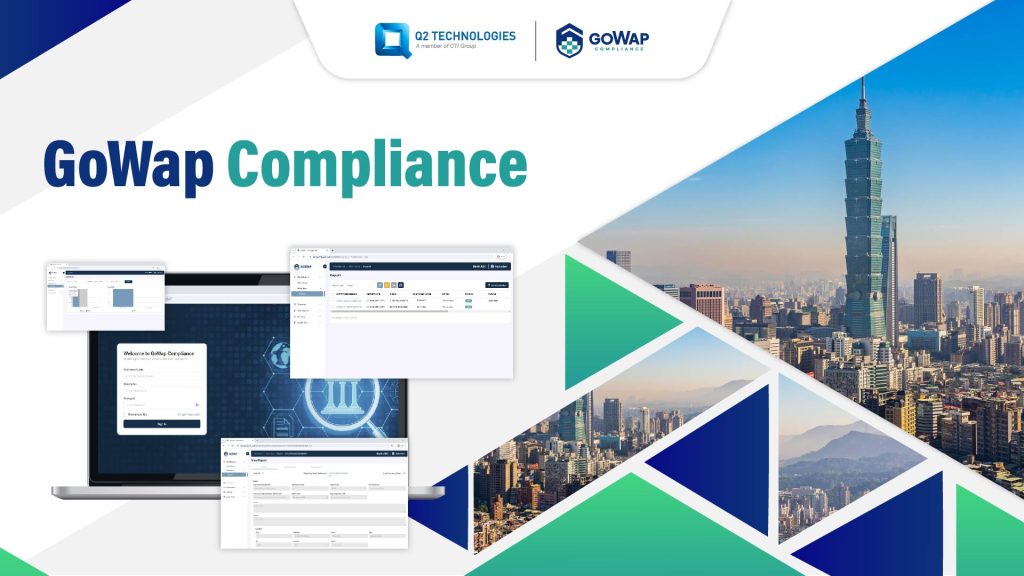In a world where financial transparancy is essential, regulatory bodies like PPATK (Pusat Pelaporan dan Analisis Transaksi Keuangan) or Indonesia’s Financial Transaction Reports and Analysis Center (INTRAC), plays a crucial role in in preventing financial crimes. Established under Law No. 8 of 2010, PPATK operates as an independent financial intelligence unit focused on preventing money laundering and terrorism financing.
With digital transactions and cross-border financial activities on the rise, PPATK’s role has become more important than ever. It ensures financial institutions and businesses comply with strict anti-money laundering (AML) and counter-terrorism financing (CTF) regulations, making Indonesia’s financial ecosystem more secure and resilient.
What is PPATK or Indonesian Financial Transaction Reports and Analysis Center (INTRAC)?
The Indonesian Financial Transaction Reports and Analysis Center (PPATK) is an independent agency responsible for preventing and combating money laundering and financial crimes in Indonesia. PPATK functions as the country’s Financial Intelligence Unit (FIU), analyzing financial transactions to detect suspicious activities related to money laundering, terrorism financing, and other financial crimes.
The agency works closely with law enforcement, regulatory bodies, and financial institutions to ensure compliance with anti-money laundering (AML) regulations. PPATK has the authority to request, collect, and analyze financial data, as well as to recommend actions against entities involved in suspicious transactions.
PPATK Responsibilities
PPATK plays a crucial role in financial crime compliance by ensuring that financial institutions adhere to strict regulatory standards. The agency requires banks and other reporting entities to submit financial transaction reports, including suspicious transaction reports (STRs) and cash transaction reports (CTRs). By leveraging advanced data analytics and intelligence-sharing mechanisms, PPATK helps identify and mitigate risks associated with illicit financial activities.
Moreover, PPATK aligns Indonesia’s financial crime compliance framework with international AML/CFT (Combating the Financing of Terrorism) standards, such as those set by the Financial Action Task Force (FATF). Through its proactive monitoring and enforcement efforts, PPATK enhances the integrity of Indonesia’s financial system and contributes to global efforts in fighting financial crimes.
Functions and Authority of PPATK
As a government agency responsible for preventing and combating money laundering and terrorism financing, PPATK primary function is to collect, analyze, and evaluate financial transaction reports from various institutions, ensuring early detection of suspicious activities. PPATK also collaborates with domestic and international entities to strengthen financial intelligence and enhance regulatory compliance in Indonesia’s financial system.
PPATK has broad authority to request and examine financial data from banks, financial institutions, and other reporting entities. It can freeze suspicious transactions, provide recommendations to law enforcement agencies, and propose policy improvements for financial crime prevention. Additionally, PPATK plays a key role in ensuring that businesses comply with financial crime regulations by offering guidance and oversight, helping to create a more transparent and secure financial ecosystem.
Types of Report Required by PPATK
To support PPATK in preventing and combating financial crimes, it requires various types of reporting from financial institutions to monitor suspicious transactions. Here are some types of report that required by PPATK:
1. Suspicious Financial Transaction Reports (Laporan Transaksi Keuangan Mencurigakan – LTKM)
Financial institutions and certain non-financial businesses must report any unusual or suspicious transactions that may indicate money laundering, terrorism financing, or other financial crimes. These transactions typically involve irregular transaction patterns, large cash movements, or transactions inconsistent with a customer’s financial profile.
2. Large Cash Transaction Reports (Laporan Transaksi Keuangan Tunai – LTKT)
PPATK mandates the reporting of cash transactions exceeding IDR 500 million (or equivalent in foreign currency) per day. This requirement helps track potentially illicit financial activities, especially those involving large sums of untraceable cash.
3. Cross-Border Fund Transfer Reports (Laporan Transaksi Keuangan Transfer Dana ke Luar Negeri – LTKL)
Financial institutions must report outbound fund transfers exceeding a specified threshold, particularly those involving high-risk jurisdictions. This measure aims to prevent the misuse of cross-border transactions for money laundering or terrorism financing.
4. Terrorism Financing Indications Report (Laporan Transaksi yang Berindikasi Pendanaan Terorisme – LTKMT)
If financial institutions detect transactions linked to individuals or entities associated with terrorism, they must report them immediately to PPATK. This includes transactions involving known terrorist organizations, sanctioned individuals, or patterns commonly used for terrorism financing.
5. Periodic Compliance Reports
Certain businesses, such as banks, insurance companies, securities firms, real estate agencies, and notaries, are required to submit periodic reports on their compliance measures related to anti-money laundering (AML) and counter-terrorism financing (CTF) regulations. These reports provide insights into an institution’s internal policies, risk assessments, and measures taken to prevent financial crimes.
Challenges in PPATK Regulatory Compliance

Regulatory compliance with PPATK requirements presents several challenges for financial institutions, businesses, and regulatory bodies. These challenges stem from the complexity of financial crime, evolving regulations, and operational limitations. Here are five challenges in PPATK regulatory compliance.
1. Complex and Time-Consuming Reporting Processes
PPATK mandates financial institutions to submit Suspicious Transaction Reports (STR), Cash Transaction Reports (CTR), and Cross-Border Fund Transfer Reports (LCT) in a timely and accurate manner. However, compliance teams often struggle with manual reporting processes, which are prone to errors and inefficiencies. The high volume of transactions further complicates timely submission, increasing the risk of non-compliance penalties.
2. Risk of Errors and False Positives in Data Analysis
Financial institutions must conduct rigorous Know Your Customer (KYC) and Customer Due Diligence (CDD) processes to identify suspicious activities. However, outdated or inefficient compliance systems may generate false positives, leading to unnecessary investigations that drain resources. Conversely, failing to detect actual illicit transactions can result in regulatory fines and reputational damage.
3. Constantly Evolving Regulatory Requirements
PPATK regulations continue to evolve in response to new financial crime trends and global compliance standards. Institutions must frequently update their compliance frameworks, requiring continuous investment in staff training, technology upgrades, and process adjustments. This poses significant challenges, especially for organizations with limited compliance budgets or outdated IT infrastructures.
4. Integration with Advanced Compliance Technologies
Modern financial crime compliance solutions, such as AI-driven transaction monitoring and blockchain analytics, offer enhanced fraud detection and regulatory compliance capabilities. However, integrating these solutions with legacy banking systems or outdated databases can be difficult and costly, slowing down adoption. Many institutions lack the necessary expertise or infrastructure to implement automated compliance solutions effectively.
5. Increasing Cross-Border Financial Crime Risks
With the rise of cross-border digital transactions and cryptocurrencies, financial institutions must navigate more complex regulatory landscapes. PPATK collaborates with international financial intelligence units (FIUs) to combat global financial crimes, requiring organizations to comply with both local and international anti-money laundering (AML) and counter-terrorism financing (CTF) regulations. Ensuring alignment with Financial Action Task Force (FATF) recommendations adds another layer of complexity.
Get GoWap Compliance Solution Only at Q2
As the ultimate solution for PPATK regulatory compliance, GoWap ensuring compliance, accuracy, and efficiency in meeting industry requirements. Get GoWap on Q2, as a trusted part of CTI Group. Q2 backed by certified and professional experts with deep industry expertise to ensure a smooth implementation and optimal performance for your regulatory reporting needs.
It is time to leverage the power of GoWap and experience a hassle-free compliance journey by contact our team now for FREE consultation.
Author: Ervina Anggraini – Content Writer CTI Group

